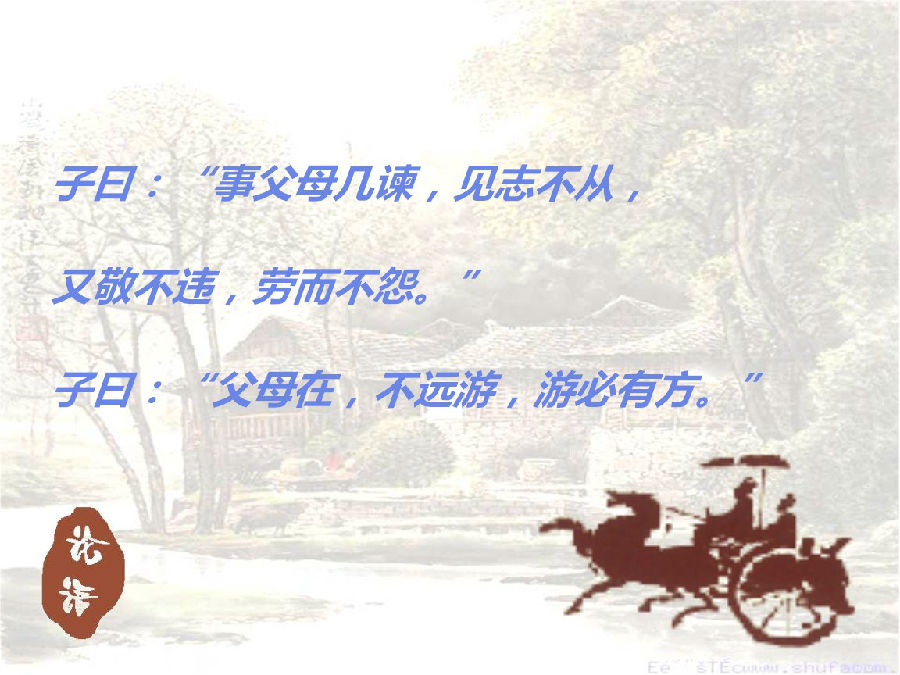The Master said, "In serving his parents, a son may remonstrate with them, but gently;
子曰:“事父母几谏,
when he sees that they do not incline to follow his advice, he shows an increased degree of reverence, but does not abandon his purpose;
见志不从,又敬不违,
and should they punish him, he does not allow himself to murmur."
劳而不怨。”
The Master said, "While his parents are alive, the son may not go abroad to a distance.
子曰:“父母在,不远游,
If he does go abroad, he must have a fixed place to which he goes."
游必有方。”
The Master said, "If the son for three years does not alter from the way of his father, he may be called filial."
子曰:“三年无改于父之道,可谓孝矣。”

The Master said, "The years of parents may by no means not be kept in the memory, as an occasion at once for joy and for fear."
子曰:“父母之年,不可不知也。一则以喜,一则以惧。”
The Master said, "The reason why the ancients did not readily give utterance to their words, was that they feared lest their actions should not come up to them."
子曰:“古者言之不出,耻躬之不逮也。”
The Master said, "The cautious seldom err."
子曰:“以约失之者鲜矣。”
The Master said, "The superior man wishes to be slow in his speech and earnest in his conduct."
子曰:“君子欲讷于言而敏于行。”
The Master said, "Virtue is not left to stand alone. He who practices it will have neighbors."
子曰:“德不孤,必有邻。”
Tsze-yu said, "In serving a prince, frequent remonstrances lead to disgrace. Between friends, frequent reproofs make the friendship distant."
子游曰:“事君数,斯辱矣;朋友数,斯疏矣。”


